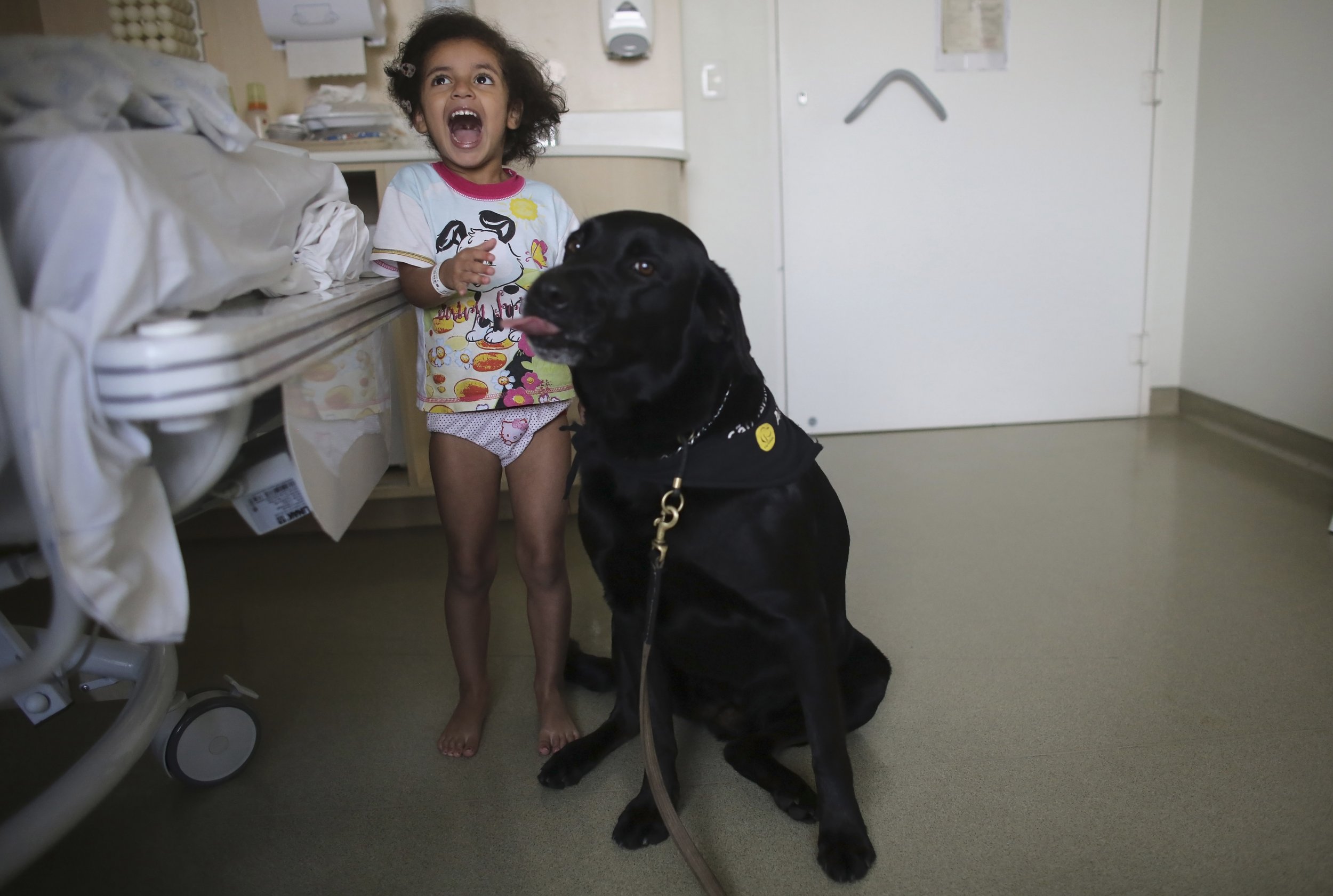
To find a cure for a bacterial infection that kills 30,000 Americans annually, the National Institutes of Health just awarded a $1.5 million grant—to a veterinary lab.
Scientists at North Carolina State University's College of Veterinary Medicine will use that funding to study how the Clostridium difficile bacteria affects animals, with the hope that what they discover will apply to humans, too.
That's the nature of medical progress—where insights gleaned from research in one species apply to others, including humans. Holistic approaches to health—ones that take into account human, animal and ecosystem health—could be the key to understanding and eventually defeating the diseases of the our modern age.
Related: What veterinarians can teach us about health
Many diseases are transmitted from animals to humans. Mosquitoes carry Zika, malaria and West Nile virus. The Ebola outbreak that reached U.S. shores in 2014 was traced back to a diseased bat. Up to 60,000 Americans get rabies vaccinations each year after coming in contact with potentially rabid animals.
The Centers for Disease Control and Prevention estimates that over 75 percent of infectious diseases originate in animals.
By studying the animals that transmit these diseases, health professionals can prevent epidemics. Consider the University of Pennsylvania veterinary school's "geographic information system," which monitors chicken populations for avian flu. The system helped identify and contain an avian flu outbreak in Pennsylvania before it could spread to other flocks—or humans. Losses totaled just $400,000.
By contrast, an outbreak in Virginia led to $100 million in damages—and risked giving the disease time to mutate and infect people—because such surveillance technology wasn't employed.
Mammals and humans also suffer from some of the same non-communicable diseases. Horses, for example, can develop cardiovascular disease. Dogs develop cancers with many similar characteristics to human cancers.
Studying and treating diseases in animals often leads to advances in human medicine. One gene therapy for blindness in dogs proved so promising that researchers are now testing it on people. Veterinarians have discovered a protein that helps animals' broken bones heal quicker—and it works for humans, too.
Studying animals can even help us diagnose disease in humans. For example, dogs can smell cancerous masses. Doctors and engineers are now exploring whether it's feasible to develop an electronic system that can mimic dogs' sense of smell in order to accurately and efficiently diagnose cancer in patients.
Given the links between human and animal health, it makes sense to tear down the walls between human and veterinary medicine. Some universities are doing just that.
Tufts University offers a joint doctor of veterinary medicine/master of public health degree. During their first summer, students spend eight weeks in the field volunteering with a health organization, where they put both their veterinary and human health training to work.
At a joint program at The Ohio State University, students extensively research a veterinary public health problem and propose their solutions. That prepares students to address global health problems, such as disease outbreaks and food supply contamination.
St. George's University, the school where I teach, also offers a doctor of veterinary medicine/master of public health dual degree as well as a doctor of veterinary medicine/master of public health program. These programs allow students to engage with one another and share insights from multiple disciplines.
In addition to cross-training through field work and classes, students can engage in One Health One Medicine activities, which bring together people from a variety of graduate, medical and veterinary studies to explore how their disciplines are interconnected.
Diseases often affect people and animals in similar ways. So it's perfectly sensible that veterinarians would research conditions that kill thousands of people.
The health of animals is intertwined with our own health. Doctors and public health officials who understand that will be better prepared to solve the medical challenges that afflict all species.
Timothy Ogilvie is the Dean of the School of Veterinary Medicine at St. George's University in Grenada.
Read more from Newsweek.com:
What Animals Can Teach Humans
Why Elephants Don't Get Cancer—and What That Means To You
Pets: Good for Your Health? - Newsweek
Uncommon Knowledge
Newsweek is committed to challenging conventional wisdom and finding connections in the search for common ground.
Newsweek is committed to challenging conventional wisdom and finding connections in the search for common ground.





